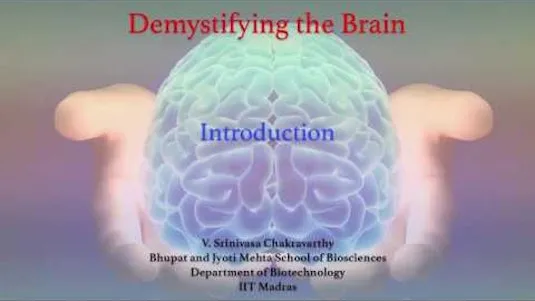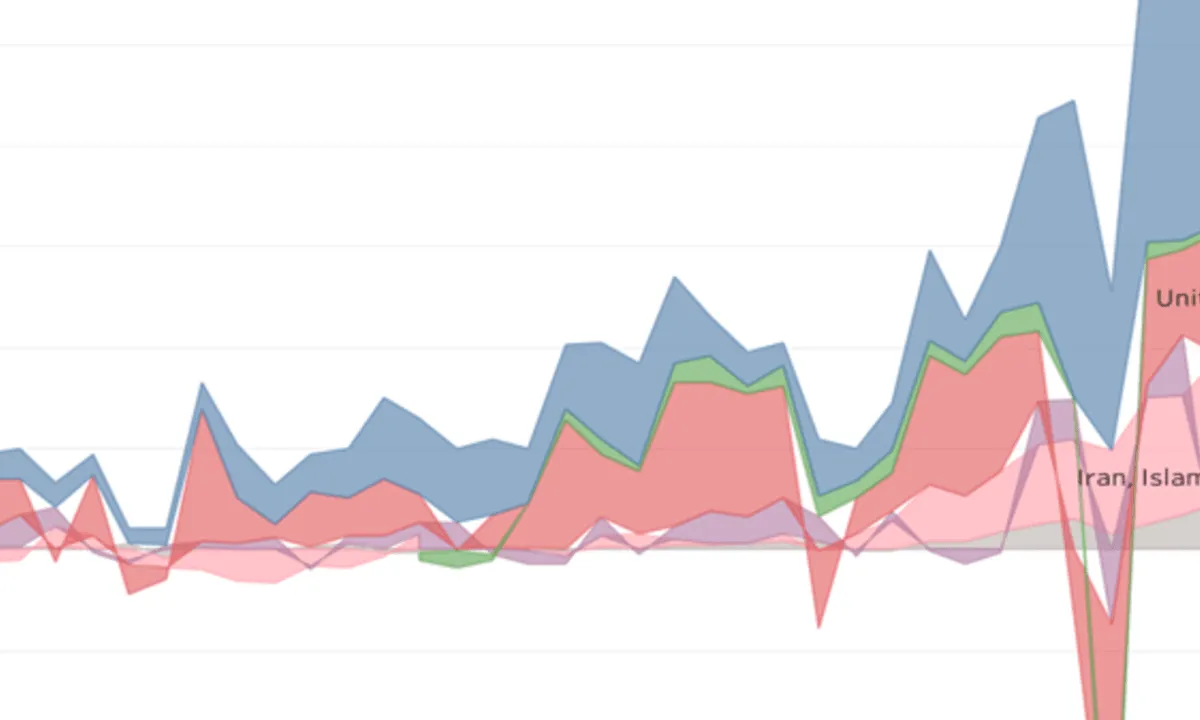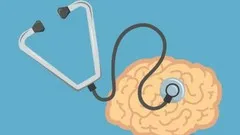
Demystifying The Brain 
This course, Demystifying The Brain, is designed to provide an introduction to neuroscience from a computational perspective, without the use of equations. It is accessible to both biological and engineering sciences students, and requires only a college level general science background. It is suitable for any level of student who is interested in neuroscience. ▼
ADVERTISEMENT
Course Feature
![]() Cost:
Cost:
Free
![]() Provider:
Provider:
Swayam
![]() Certificate:
Certificate:
Paid Certification
![]() Language:
Language:
English
![]() Start Date:
Start Date:
22nd Jan, 2023
Course Overview
❗The content presented here is sourced directly from Swayam platform. For comprehensive course details, including enrollment information, simply click on the 'Go to class' link on our website.
Updated in [March 20th, 2023]
1. You can gain a better understanding of the brain from a computational perspective. This course will provide you with an introduction to neuroscience without the need for equations or complex biology jargon. You will be able to learn about the brain from both a biological and engineering point of view.
2. You can gain a better understanding of the brain's function and structure. This course will provide you with an overview of the brain's anatomy and physiology, as well as its role in cognition and behavior. You will also learn about the different types of neurons and how they interact with each other.
3. You can gain a better understanding of the brain's development and plasticity. This course will provide you with an overview of the brain's development from birth to adulthood, as well as its ability to change and adapt over time. You will also learn about the different types of plasticity and how they affect the brain's functioning.
4. You can gain a better understanding of the brain's diseases and disorders. This course will provide you with an overview of the different types of neurological disorders, as well as their causes and treatments. You will also learn about the different types of brain injuries and how they can affect the brain's functioning.
5. You can gain a better understanding of the brain's evolution. This course will provide you with an overview of the evolution of the brain, as well as its role in the development of human behavior. You will also learn about the different types of evolutionary adaptations and how they have shaped the brain's functioning.
[Applications]
After completing this course, students can apply their knowledge to a variety of fields. For example, they can use their understanding of the brain to develop new technologies, such as artificial intelligence, robotics, and virtual reality. They can also use their knowledge to develop new treatments for neurological disorders, or to create new methods of teaching and learning. Additionally, they can use their understanding of the brain to create new ways of understanding and interpreting data, or to develop new methods of communication.
[Career Paths]
1. Neuroscientist: Neuroscientists study the structure and function of the brain and nervous system. They use a variety of techniques, including imaging, electrophysiology, and molecular biology, to understand how the brain works and how it affects behavior. Neuroscientists are in high demand as the field of neuroscience continues to grow and develop.
2. Cognitive Scientist: Cognitive scientists study the mental processes that underlie behavior, including perception, attention, memory, language, decision-making, and problem-solving. They use a variety of methods, including experiments, computer simulations, and mathematical models, to understand how the brain works and how it affects behavior. Cognitive scientists are in high demand as the field of cognitive science continues to grow and develop.
3. Neuropsychologist: Neuropsychologists study the relationship between the brain and behavior. They use a variety of techniques, including neuropsychological tests, brain imaging, and electrophysiology, to understand how the brain works and how it affects behavior. Neuropsychologists are in high demand as the field of neuropsychology continues to grow and develop.
4. Artificial Intelligence Engineer: Artificial intelligence engineers design and develop computer systems that can think and act like humans. They use a variety of techniques, including machine learning, natural language processing, and robotics, to create intelligent systems that can solve complex problems. Artificial intelligence engineers are in high demand as the field of artificial intelligence continues to grow and develop.
[Education Paths]
1. Neuroscience Degree: A neuroscience degree is a great way to gain a comprehensive understanding of the brain and its functions. This degree path focuses on the study of the nervous system, including the anatomy, physiology, and biochemistry of the brain. It also covers topics such as cognitive neuroscience, neuropsychology, and neuroimaging. Developing trends in this field include the use of artificial intelligence and machine learning to better understand the brain and its functions.
2. Cognitive Science Degree: A cognitive science degree is a great way to gain an understanding of the brain from a computational perspective. This degree path focuses on the study of the mind, including topics such as artificial intelligence, machine learning, and natural language processing. Developing trends in this field include the use of virtual reality and augmented reality to better understand the brain and its functions.
3. Computer Science Degree: A computer science degree is a great way to gain an understanding of the brain from a computational perspective. This degree path focuses on the study of computer programming, algorithms, and data structures. Developing trends in this field include the use of artificial intelligence and machine learning to better understand the brain and its functions.
4. Psychology Degree: A psychology degree is a great way to gain an understanding of the brain from a psychological perspective. This degree path focuses on the study of the mind, including topics such as cognitive psychology, social psychology, and developmental psychology. Developing trends in this field include the use of virtual reality and augmented reality to better understand the brain and its functions.
Course Provider

Provider Swayam's Stats at AZClass
Discussion and Reviews
0.0 (Based on 0 reviews)
Explore Similar Online Courses

Digital crypto currencies AZ

Inventory Analytics

Python for Informatics: Exploring Information

Social Network Analysis

Introduction to Systematic Review and Meta-Analysis

The Analytics Edge

DCO042 - Python For Informatics

Causal Diagrams: Draw Your Assumptions Before Your Conclusions

Whole genome sequencing of bacterial genomes - tools and applications

Control Your Subconscious Mind: Neuroscience Hidden Secrets

Perform an Excellent Neurological Bedside Exam

Brain and Behavioral Science Fundamentals
 Related Categories
Related Categories
 Popular Providers
Popular Providers
Quiz
 Submitted Sucessfully
Submitted Sucessfully
1. What is the intended audience for this course?
2. What are the prerequisites for this course?
3. What is the industry support for this course?


Start your review of Demystifying The Brain